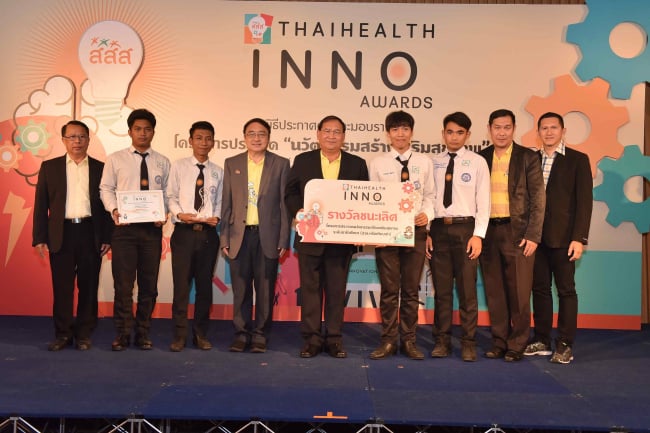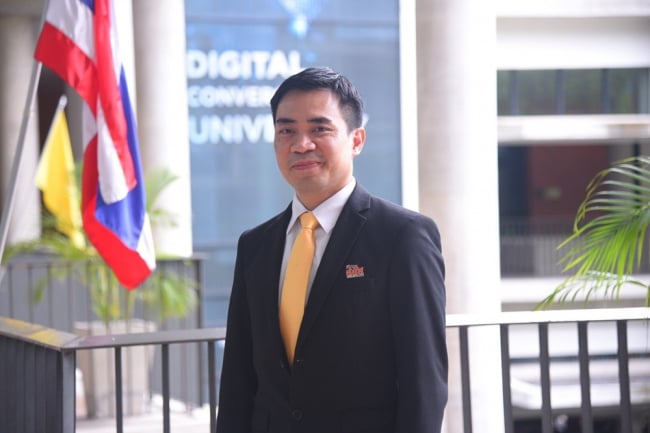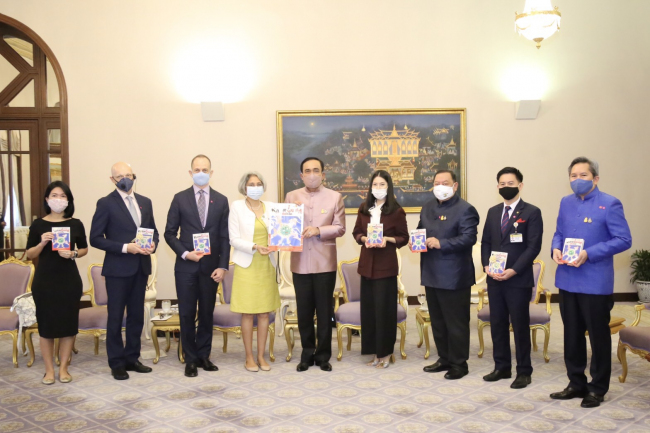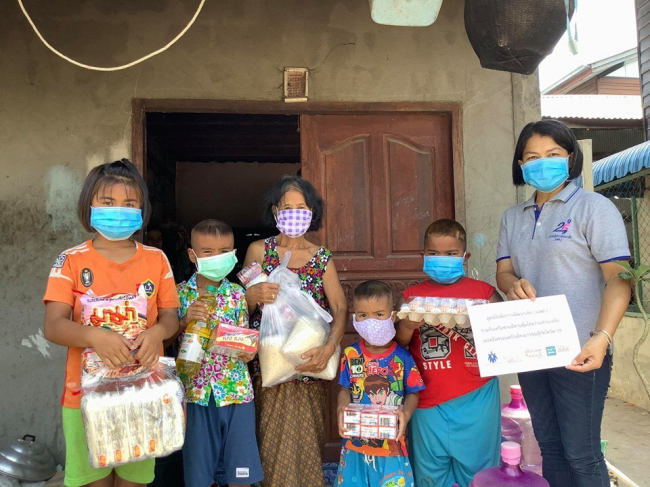HEALTH PROMOTION PLAN FOR VULNERABLE POPULATIONS

HEALTH PROMOTION PLAN FOR VULNERABLE POPULATIONS
Thai society is evolving into an aging population, with approximately 8.3 million elderly Thai people accounting for about 10% of the Thai population. The number of elderly is increasing and even though the majority of the elderly can care for themselves without burdening their families or society, many continue to live in unhealthy conditions.
Therefore, it is important to plan for the future of the elderly population by creating suitable and healthy environments to accommodate their needs. In addition to the elderly, there are other vulnerable populations including 39.6 million (registered and unregistered) laborers and 33.3 million women, many of whom are under privileged and sexually exploited.
Focus Areas Based on Vulnerable Populations
1) Disabled People: Emphasis is being placed on developing professional capacity and providing education to the disabled. In addition, studies are ongoing to reduce economic inequalities and provide access to holistic health services, with the involvement of the public sector, business sector, civil society sector, and networks and organizations for the disabled..
2) Elderly People: Thai society is beginning to prepare for the emergence of an aging population while ensuring equality, dignity, adaptability, livelihood assurance, and sufficient long-term care.
3) Laborers: Support is provided to create social security, adequate wages, security, and workplace and environmental safety. Policies are driven to support work implementation in local areas, with enhancements in relevant work mechanisms and processes among relevant organizations.
4) Women: Emphasis on stimulating the development of health promotion mechanisms for women is growing via knowledge sets and tools that are suited for addressing sexuality and diversity issues. A significant emphasis is placed on underprivileged women in Thai society.
5) Thai-Muslims: The health of Thai-Muslims, especially Thai-Muslims facing everyday hardships, is promoted through capacity development and by strengthening the capacity of leaders and networks to carry out health-promoting activities appropriately and sustainably.
6) Stateless persons and Transnational Laborers: Stateless persons along with transnational laborers are provided equal access to health, protection, as well as basic services in health, education, welfare, legal status, and capacity development.
7) Homeless People: Homeless people receive assistance to develop personal capacity to improve quality of life. Systems providing housing and mechanisms to increase access to basic services and welfare are under development in communities through collaboration with civil society, the public sector, and the academic sector.
MEDIA
- HEALTH PROMOTION PLAN FOR VULNERABLE POPULATIONS

10 June 2563
1,629
From incessant creation of ideas, the final piece of innovative invention of “rubber road guideposts” by fantastic-four students at Surat Thani Technical College – the innovation has won the first prize at ThaiHealth INNO Award – an award providing opportunities for secondary school and vocational college students who create innovative works to promote health – has finally been put to use by the government. The Department of Rural Roads, Ministry of Transport, organized a press conference on May 20, 2020 on the nationwide change of highway barrier posts into rubber following recent Ministry of Transport policy. Under the project, a total of 700,000 posts will be changed within the year 2022, with preliminary 200,000 posts to be changed within this year. The move is believed to minimise damages caused by road accidents of skidding or crashing into concrete posts, which lead to loss of life. The move to change highway concrete guideposts into rubber is not only an effort to reduce loss of life and damage caused by road accidents, but also a push to increase the use of locally made rubber in the country and to help rubber planters to have better quality of life. Another advantage to the change is the price; as the production cost of a rubber guidepost is greatly cheaper than the concrete counterpart....

01 June 2563
2,069
ThaiHealth – Thail Health Report 2020 by the Institute for Population and Social Research, Mahidol University showed that Thai health system e is on the world-class standard, with the total score of 73.2 out of 100, indicating that Thailand is one of the 13 countries with the most prepared for a pandemic. Director of ThaiHealth’s Partnership and International Relations Section, Dr Nuttapun Supaka, said that ThaiHealth would like to express gratitude towards the medical personnel community for their tireless dedication in trying to minimise the number of domestic infection cases of CoVid-19 epidemic in Thailand and that until now the situation is continuously improving. He is also delighted with the Thai Health Report 2020 which jointly produced by ThaiHealth, Institute for Population and Social Research Mahidol University, and academic that collects the statistics from reliable international organizations, revealing Thailand’s health system has gained global recognition for the quality of its healthcare services. According to John Hopkins University and Nuclear Threat Initiative, Thailand is ranked 6th in the world and 1st in Asia with the total score of 73.2/100 points in the Health Security Index 2019 (while the global average is 40.2 points). It is also regarded as one out of thirteen countries with the most prepared for a pandemic. “Thailand received 75.7 points in the category of disease prevention (3rd ...

27 May 2563
1,312
World Health Organization participated today in the launch of a special edition of the popular Thai comic magazine Kai Hua Ror [Laughter for Sale] designed to show families nationwide how to protect themselves from COVID-19. Dr. Daniel Kertesz, WHO Representative to Thailand, was among those who presented the special edition to Prime Minister Prayut Chan-o-cha in a ceremony at Government House. Using cartoons and humour, the 56-page magazine shows readers how to reduce the risks of infection for themselves and their communities by using basic but effective measures – washing hands frequently and properly, coughing and sneezing safely, avoiding touching your mouth and nose, and staying a safe distance (1-2 m) from others. “We know that these simple but effective measures will help all people living in Thailand protect themselves and those around them from COVID-19. They should be practiced by everybody, everywhere. All of us must pay special attention to them as businesses, schools and other public places reopen,” Dr. Kertesz said. “Continuing to apply these measures in Thailand and around the world is our best hope now against this pandemic.” The cartoons also take on sensitive topics in simple and easy-to-understand terms, such as showing people how to reduce stigma around coronavirus infection and how to be aware of the domestic violence that has increased as a...

27 May 2563
1,304

